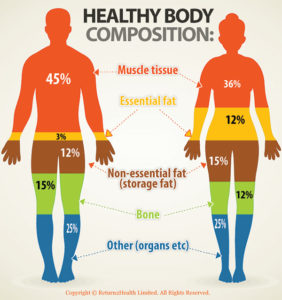 Today, I’m writing about ‘how to lose fat – create an energy deficit’. It’s quite simple really, if you burn more calories than you ingest, you’ll lose weight / fat – period.
Today, I’m writing about ‘how to lose fat – create an energy deficit’. It’s quite simple really, if you burn more calories than you ingest, you’ll lose weight / fat – period.
To do this you first need to find out your Total Daily Energy Expenditure (TDEE), refer to my previous blog “How to work out your Total Daily Energy Expenditure (TDEE)”
Once you’ve worked this out, you’re good to go…
A common approach to reducing body fat is to establish a negative energy balance. Research indicates that if the energy deficit is too great then body fat is more likely to return, possibly to an even greater level.
A priority for an effective weight management programme is to lose body fat, whilst retaining as much lean mass (muscle) as possible thereby minimising the fall in metabolic rate. Many studies on this subject have all concluded that a weight loss of 1 lb per week (ideally from body fat) is recommended.
Create a 500 kcal deficit per day = 3500 kcal in a week = approximately 1 lb of fat
This reduction in body weight may be achieved through several different strategies:
- diet restriction alone
- exercise intervention alone
- exercise and dietary restriction combined – most effective approach*
* The combination of exercise coupled with a modest dietary restriction has been proved from numerous studies to be the most effective method for achieving the desired negative energy balance whilst minimising a fall in metabolic rate.
To work out the number of calories in foods / meals, you could use a number of free android apps. My favourite app is “MyFitnessPal”, which helps you keep track of your eating habits and the amount of calories in each meal.
Conclusion
Reduce calories by a combination of exercise and diet to the sum of 500 a day from your TDEE. Try to be honest with your calorie consumption, use an app like “MyFitnessPal” to track your meals and snacks.
